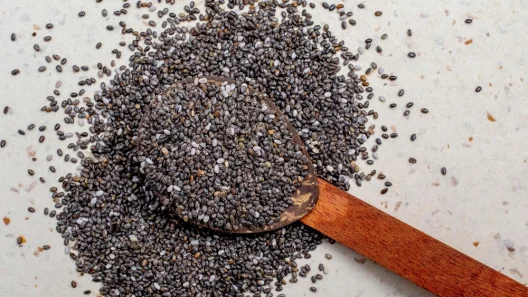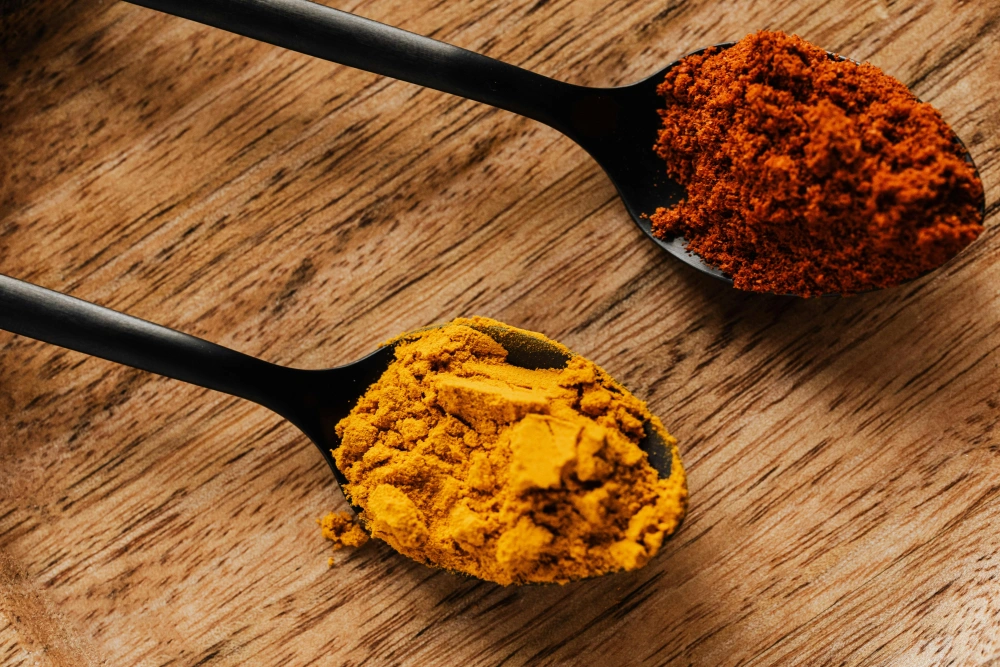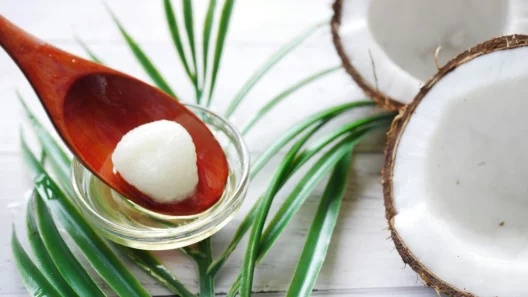In recent years, gut health has emerged as a cornerstone of overall wellness, with modern science validating what ancient healing traditions have known for millennia. Amidst growing interest in holistic and natural approaches to health, Ayurvedic herbs have gained significant attention for their ability to support digestive harmony and systemic balance. At MyGreenRemedy, we believe in integrating time-tested wisdom with evidence-based practices to help you achieve optimal well-being. This article explores the powerful role of Ayurvedic herbs like turmeric, ginger, and Triphala in promoting gut health, examining both traditional uses and modern scientific support. Whether you’re struggling with bloating, indigestion, or simply seeking to maintain a healthy digestive system, these ancient remedies offer compelling solutions that align with contemporary understanding of the gut as the foundation of vitality.
What Is Ayurveda?
Ancient Wisdom for Modern Health
Ayurveda, often called the “science of life,” is one of the world’s oldest holistic healing systems, originating in India over 5,000 years ago. This traditional medicine system is built on the principle that health and wellness depend on a delicate balance between the mind, body, and spirit. Unlike Western medicine, which often focuses on treating symptoms, Ayurveda emphasizes prevention and aims to address the root causes of imbalance through personalized approaches to diet, lifestyle, and herbal remedies .
The Central Role of Agni (Digestive Fire)
In Ayurveda, the concept of Agni (digestive fire) is fundamental to understanding gut health. Agni represents the metabolic intelligence that governs digestion, absorption, and assimilation of nutrients while simultaneously eliminating waste products. When Agni is strong and balanced, we experience optimal digestion, energy, and immunity. Conversely, weakened or imbalanced Agni leads to the accumulation of Ama (toxins), which Ayurveda considers the root cause of disease .
The strength of Agni is influenced by the three doshas (biological energies): Vata (air and space), Pitta (fire and water), and Kapha (earth and water). Each person has a unique constitution (Prakriti) dominated by one or more of these doshas, which determines their digestive tendencies and susceptibility to imbalances:
- Vata imbalance: May cause irregular digestion, gas, and constipation
- Pitta imbalance: Can lead to acid reflux, inflammation, and loose stools
- Kapha imbalance: Often results in sluggish digestion, heaviness, and mucus accumulation
Key Ayurvedic Herbs for Gut Health
Turmeric: The Golden Healer
Turmeric (Curcuma longa) holds a revered position in Ayurveda for its potent anti-inflammatory and digestive properties. The active compound curcumin gives turmeric its vibrant golden hue and therapeutic benefits.
Gut Health Benefits:
- Reduces inflammation: Curcumin modulates inflammatory pathways in the gut, potentially helping with conditions like inflammatory bowel disease (IBD) and colitis .
- Enhances microbiome diversity: Studies show turmeric increases beneficial gut bacteria while reducing pathogenic strains, with one clinical trial demonstrating a 69% increase in microbial diversity after curcumin supplementation .
- Strengthens intestinal barrier: Curcumin helps maintain the integrity of the gut lining, preventing “leaky gut” syndrome and associated inflammation .
Scientific Support: A 2018 randomized controlled trial found that turmeric and curcumin supplementation significantly improved gut microbiota composition and reduced inflammation markers in participants with metabolic syndrome . However, curcumin has low bioavailability on its own; Ayurveda traditionally combines it with black pepper (which contains piperine) to enhance absorption by up to 2000% .
Ginger: The Digestive Stimulant
Ginger (Zingiber officinale) is renowned in Ayurveda as a universal medicine for digestion. Its Sanskrit name “Vishwabhesaj” means “universal medicine,” reflecting its broad applications.
Gut Health Benefits:
- Accelerates gastric emptying: Gingerol, the main bioactive compound, enhances gastrointestinal motility, reducing bloating and discomfort .
- Relieves nausea: Multiple studies confirm ginger’s effectiveness against nausea from pregnancy, chemotherapy, and surgery without the side effects of pharmaceutical alternatives .
- Reduces inflammation: Ginger contains over 400 natural compounds with anti-inflammatory and antioxidant properties that soothe the digestive tract .
Scientific Support: A 2024 review published in the Journal of Ethnopharmacology concluded that ginger (particularly at 2000 mg daily) supports digestive health in irritable bowel syndrome (IBS) and inflammatory bowel disease (IBD) by promoting gastric motility, stimulating digestive juices, and relieving discomfort .
Triphala: The Traditional Tonic
Triphala, a classic Ayurvedic formulation, combines three medicinal fruits: Amalaki (Indian gooseberry), Bibhitaki, and Haritaki. This tridoshic formula balances all three doshas and gently supports digestive function.
Gut Health Benefits:
- Gentle detoxification: Triphala acts as a mild laxative that regulates bowel movements without causing dependency or irritation .
- Prebiotic effects: The formulation feeds beneficial gut bacteria, enhancing microbial diversity and function .
- Digestive support: Triphala improves nutrient absorption and strengthens the digestive fire (Agni) while reducing inflammation in the gastrointestinal tract .
Scientific Support: While human studies are limited, animal and test-tube research indicates Triphala may reduce inflammation associated with arthritis and protect against certain cancers . A study on Triphala mouthwash demonstrated reduced plaque buildup and gum inflammation, suggesting broader anti-inflammatory effects .
Licorice Root: The Soothing Solution
Licorice root (Glycyrrhiza glabra), known as “Yashtimadhu” in Sanskrit, translates to “sweet stick,” reflecting its naturally sweet flavor. Ayurveda values it for its ability to soothe and protect the digestive tract.
Gut Health Benefits:
- Soothes mucous membranes: Licorice forms a protective layer along the digestive tract, reducing irritation and inflammation .
- Supports ulcer healing: Compounds in licorice have been shown to promote healing of gastric and duodenal ulcers .
- Balances stomach acid: Licorice helps regulate stomach acid production, relieving heartburn and acid reflux .
Scientific Support: Human studies suggest licorice root may help prevent or manage heartburn, bloating, nausea, belching, and stomach ulcers, though more research is needed to confirm these benefits .
Cumin, Fennel & Coriander: The Classic Digestive Trio
These three spices are fundamental to Ayurvedic cooking and medicine, often combined to support digestion and prevent gas and bloating.
Gut Health Benefits:
- Cumin (Jeera): Stimulates digestive enzymes and improves nutrient absorption. Animal studies show cumin may help control blood lipids and protect the liver .
- Fennel (Saunf): Relieves gas and bloating while soothing intestinal spasms. Fennel seeds are commonly chewed after meals in India to aid digestion.
- Coriander (Dhania): Helps alleviate gas and supports healthy liver function. Both leaves and seeds are used in Ayurvedic preparations.
Scientific Support: Research on cumin suggests it may protect against type 2 diabetes by lowering blood sugar levels and improving insulin sensitivity . While human studies on fennel and coriander are limited, their traditional use is extensive and supported by anecdotal evidence.
Table: Ayurvedic Herbs and Their Gut Health Benefits
| Herb | Primary Benefits | Dosha Balance | Scientific Support Level |
| Turmeric | Reduces inflammation, enhances microbiome | Pitta, Kapha | Strong (human trials) |
| Ginger | Improves motility, reduces nausea | Kapha, Vata | Strong (human trials) |
| Triphala | Gentle detoxification, prebiotic effects | All doshas | Moderate (animal studies) |
| Licorice Root | Soothes mucous membranes, balances acid | Pitta, Vata | Moderate (small human studies) |
| Cumin, Fennel, Coriander | Reduce gas, improve digestion | Vata, Kapha | Traditional use, emerging science |
What about Ayurvedic practices for thicker hair? We’ve got you covered.
Science Meets Tradition
Evidence-Based Benefits
Modern scientific research has begun to validate many traditional Ayurvedic claims about gut health:
- Microbiome modulation: Studies show that Ayurvedic herbs like turmeric and Triphala increase beneficial gut bacteria while reducing pathogenic strains .
- Anti-inflammatory effects: Multiple compounds in Ayurvedic herbs, including curcumin in turmeric and gingerol in ginger, have demonstrated significant anti-inflammatory properties in clinical studies .
- Gut-brain axis influence: Emerging research suggests that Ayurvedic herbs may positively influence the gut-brain connection, potentially explaining their traditional use for both digestive and mental health .
Areas Requiring More Research
While promising, the scientific understanding of Ayurvedic herbs has limitations:
- Human trials are limited: Many studies have been conducted in animals or test tubes, and more large-scale human clinical trials are needed.
- Standardization challenges: Ayurvedic preparations often use whole herbs and complex formulations, making it difficult to isolate specific active compounds.
- Personalization aspects: Ayurveda emphasizes individualized treatments based on dosha balance, which is difficult to study using conventional Western research methods that favor one-size-fits-all approaches .
Looking to learn more about holistic approaches to wellness? Start with our Ultimate Guide to Natural Remedies for Everyday Health.
How to Use Ayurvedic Herbs for Digestion
Traditional Preparations
Herbal Teas and Infusions:
- Ginger tea: Steep fresh ginger slices in boiling water for 10 minutes to stimulate digestion and relieve nausea .
- Turmeric golden milk: Combine turmeric with warm milk (or plant-based milk), black pepper, and healthy fats for better absorption.
- Cumin-coriander-fennel tea: This classic Ayurvedic blend, known as “CCF tea,” is excellent for balancing all doshas and supporting digestion.
Powders (Churnas):
Ayurvedic herbal powders can be mixed with water, honey, or ghee. Triphala powder is commonly taken before bed to support gentle elimination upon waking.
Culinary Uses:
Incorporate Ayurvedic herbs regularly into cooking:
- Add turmeric and ginger to soups, stews, and stir-fries
- Use cumin, fennel, and coriander seeds in tempering or seasoning
- Include fresh cilantro (coriander leaves) in salads and chutneys
Supplements and Safety
Choosing Quality Supplements:
- Look for reputable brands that test for heavy metals and contaminants .
- Prefer organic, sustainably sourced products whenever possible.
- Consider third-party testing certifications from organizations like USP or NSF International.
Dosage Guidelines:
- Turmeric: 500-2,000 mg of curcumin daily, preferably with black pepper for absorption .
- Ginger: 1-3 grams daily of dried ginger powder or 2-4 inches of fresh ginger .
- Triphala: 500-1,000 mg daily, typically taken in the evening .
Safety Considerations & Who Should Avoid
Potential Interactions and Side Effects
While generally safe when used appropriately, Ayurvedic herbs require caution in certain situations:
Medication Interactions:
- Blood thinners: Turmeric and ginger may increase bleeding risk when taken with medications like warfarin or aspirin .
- Diabetes medications: Ginger and turmeric may enhance blood sugar-lowering effects, requiring monitoring .
- Acid-reducing medications: Licorice may interact with medications for hypertension and heart conditions .
Specific Health Conditions:
- Gallbladder issues: Turmeric may cause contractions in people with gallbladder disease .
- Gastroesophageal reflux disease (GERD): Ginger might exacerbate symptoms in some individuals with GERD .
- Hypertension: Licorice containing glycyrrhizin can raise blood pressure with prolonged use .
Special Populations
- Pregnancy and breastfeeding: Ginger is likely safe for morning sickness in small amounts, but turmeric supplements should be avoided. Always consult a healthcare provider .
- **Children: ** Dosages must be adjusted based on weight and age, preferably under professional guidance.
- Autoimmune conditions: Some herbs may stimulate immune function and should be used cautiously in conditions like rheumatoid arthritis or multiple sclerosis.
FAQs
Do Ayurvedic herbs really work for IBS?
Answer: Emerging research suggests certain Ayurvedic herbs may help manage IBS symptoms. Ginger has shown promise in improving gastric motility and reducing discomfort . Turmeric may alleviate inflammation associated with IBS, and a combination of digestive spices (cumin, fennel, coriander) can reduce bloating and gas. However, individual responses vary, and these should complement rather replace conventional treatments.
Can you combine Ayurvedic herbs with probiotics?
Answer: Yes, Ayurvedic herbs and probiotics can work synergistically. Many Ayurvedic herbs have prebiotic effects – particularly Triphala – which feed beneficial gut bacteria . However, space them apart by 2-3 hours for optimal effectiveness, and consult with a healthcare provider for personalized recommendations.
How fast do Ayurvedic herbs work for digestion?
Answer: The timeline varies based on the herb and individual:
- Ginger: Can provide nausea relief within 30 minutes .
- Digestive spices (cumin, fennel, coriander): May reduce bloating within hours.
- Turmeric and Triphala: May take 2-4 weeks of consistent use for noticeable anti-inflammatory and regulatory effects .
Consistency is key, as Ayurveda emphasizes gradual restoration of balance rather than quick fixes.
Are Ayurvedic herbs safe for long-term use?
Answer: Many Ayurvedic herbs have excellent safety profiles for long-term use when taken at appropriate dosages. Traditional use spanning centuries supports the long-term safety of herbs like ginger, turmeric, and Triphala when used as part of a balanced approach. However, periodic breaks (e.g., 5 days per month) are often recommended to maintain effectiveness, and professional guidance is advised for usage beyond 3 months.
Conclusion
Ayurvedic herbs offer a time-tested, holistic approach to gut health that aligns remarkably well with modern scientific understanding of digestion, the microbiome, and overall wellness. Turmeric, with its powerful anti-inflammatory properties; ginger, a proven remedy for nausea and motility issues; Triphala, the gentle detoxifying formula; licorice root, the soothing digestive protectant; and classic digestive spices like cumin, fennel, and coriander together represent a natural pharmacy for digestive support.
While scientific research continues to validate traditional Ayurvedic knowledge, it’s important to remember that these herbs work best as part of a comprehensive approach to health that includes a balanced diet, stress management, and regular exercise. Ayurveda teaches us that true healing comes from addressing the root causes of imbalance rather than merely suppressing symptoms.
At MyGreenRemedy, we encourage you to explore these ancient remedies with both curiosity and caution. Start with small doses, listen to your body’s responses, and consult with healthcare professionals – especially if you have pre-existing conditions or take medications. When used wisely, Ayurvedic herbs can be powerful allies in your journey toward optimal gut health and overall well-being.
Remember: Ayurveda complements but doesn’t replace conventional medical care. Always work with qualified practitioners who can help you integrate these traditional remedies safely into your health regimen.









